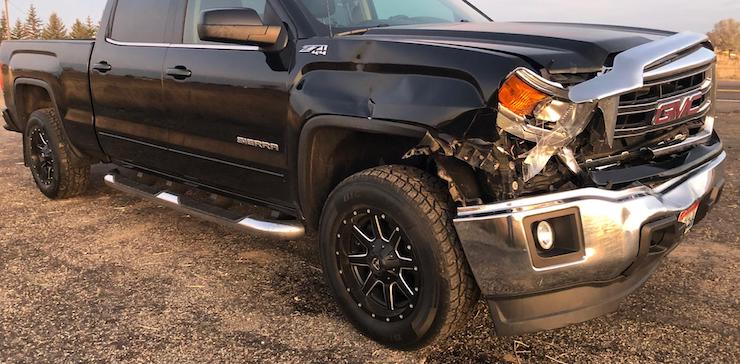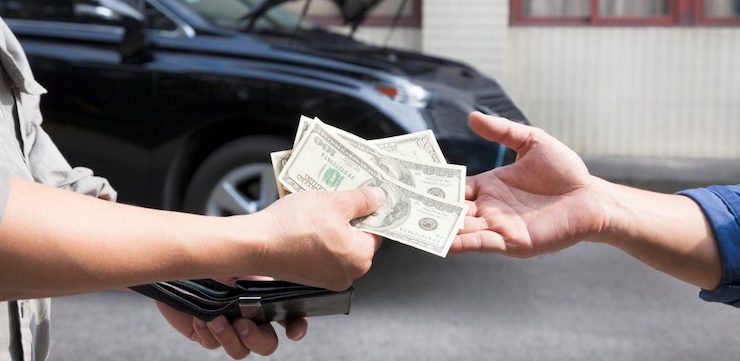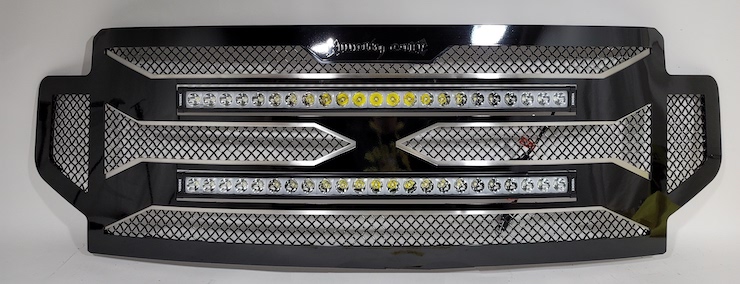What To Do If Your Vehicle Strikes An Animal - Insurance And Repair Advice
Striking an animal with your vehicle can be quite a stressful situation. You’re left with a damaged vehicle. And now you have to deal with your insurance company. It’s easy to become overwhelmed by all the things you need to do to restore your vehicle. We’re here to help you through the situation.
1. Inspect Your Vehicle For Damage

When your vehicle strikes an animal, you hope for only cosmetic damage. That's the best-case scenario. Your vehicle likely has grille and/bumper damage. If the impact is more severe, there may be damage to your radiator or transmission cooler. In that case, it will cost a lot more money to restore your vehicle.
So the first thing you want to do is to inspect the front of your vehicle. Take note of every part that has been damaged. This will give you a good place to start with your insurance company.
2. Contact Your Insurance Company About Replacing The Damaged Parts
Insurance companies are in the business of making money. So they’ll try to save money in every way possible. You may end up not getting your money's worth with the insurance company. Before contacting them, be sure to know your repair rights as a customer. Your insurance company adjuster will likely not tell you what you're entitled to. You are your own biggest advocate in this situation. Take the time to look up the rights you have in your state. Here are a few examples:
- In most states, repair shops and insurance companies must inform the consumer if they plan to use aftermarket parts.
- In a few states, repair shops and insurance companies must get your consent before using aftermarket parts.
- In some states, insurance companies must spend the money to restore your vehicle to the condition it was in before the accident. This law mostly applies to newer cars.
3. Find A Good Auto Body Shop To Work With

It's very important to find the right body shop to work with. Your insurance company may give you a "preferred list" of auto body shops to work with. This list only exists for the insurance company to save money. These body shops may offer lower-quality repairs. The good news is you have the power to decide which auto body shop to work with. Your insurance company may send suggestions, but at the end of the day, you make the decision.
If your insurance company provided a list of preferred body shops, look up each one. Find out what their previous customers have to say about their services. Do your due diligence until you find an auto body shop you're comfortable with. Find a body shop that:
- Has the right equipment
- Employs techs with proper training
- Provides a good warranty on their work
- Will keep you advised on the progress of the repairs
- Informs you of any issues that arise with the insurance company
- Understands that they work for you, not the insurance company
What To Watch Out For In A Body Repair Estimate
In most states, body shops must provide consumers with a body repair estimate. Even if you don't live in one of these states, always request an estimate. Keep in mind that some repair shops charge a fee for estimates. They have to let you know about their fees before providing an estimate.
When an auto body shop provides a body repair estimate, look over it carefully. Look for the following information:
- The type of parts they use: Always insist on OEM replacement parts for everything. That is, except the grille and/or bumper. More on this later.
- Rental vehicle reimbursement: If your insurance policy covers this, make sure it's included in the estimate.
- The warranty/guarantee the shop offers: You want a lifetime warranty on collision parts, paint, etc.
- The mechanical inspection the body shop has performed to verify what has been damaged: Make sure you know who performed the inspection, too.
If you find any discrepancies or missing information, talk to the body shop.
Ask Your Body Shop If They Can Waive Your Deductible
It's perfectly legal to have a body shop waive your deductible. You can save a lot of money if they do that. All you need to do is ask. Oftentimes, they can waive it. At the very least, they can try to reduce your out-of-pocket costs. They do this by incorporating all or part of your deductible into the repair bill.
4. Reduce The Risk Of Damage From An Animal Strike In The Future

When your vehicle is in the shop, you can use this opportunity to beef up your vehicle a little bit. If you take the right measures, your vehicle will be better equipped to handle another animal strike, if it happens. Scrap the deer whistles (they don't really work anyway) and explore the following options:
- Brighter lights
- Auxiliary lights
- Grille guard
- Bull bar
- Steel bumper
Quality safety features can go a long way. For example, installing a headache rack on a pickup truck (like we talk about in this buyer's guide) is a great idea. It will keep the rear window and passengers safe from the cargo in the bed.
You Can Use This Opportunity To Upgrade To A Quality Aftermarket Grille
One of the best upgrades you could make to your vehicle is to install a Royalty Core grille. Stock grilles don't provide the protection your vehicle needs in an animal strike. With a Royalty Core grille on your truck, your radiator, transmission cooler, and other parts are better protected. This may save you a lot of money down the road if your vehicle hits an animal again.
You can even have your insurance company cover the costs. Contrary to popular belief, you don't have to replace your grille with a stock one. The insurance company owes you the funds needed to buy and install a replacement grille. You can decide on the kind of grille you want on your vehicle.
Let the body shop know that you want a Royalty Core grille on your vehicle instead of a stock one. They'll help you work out the details. If the body shop won't work with you, take your truck to a different shop.
